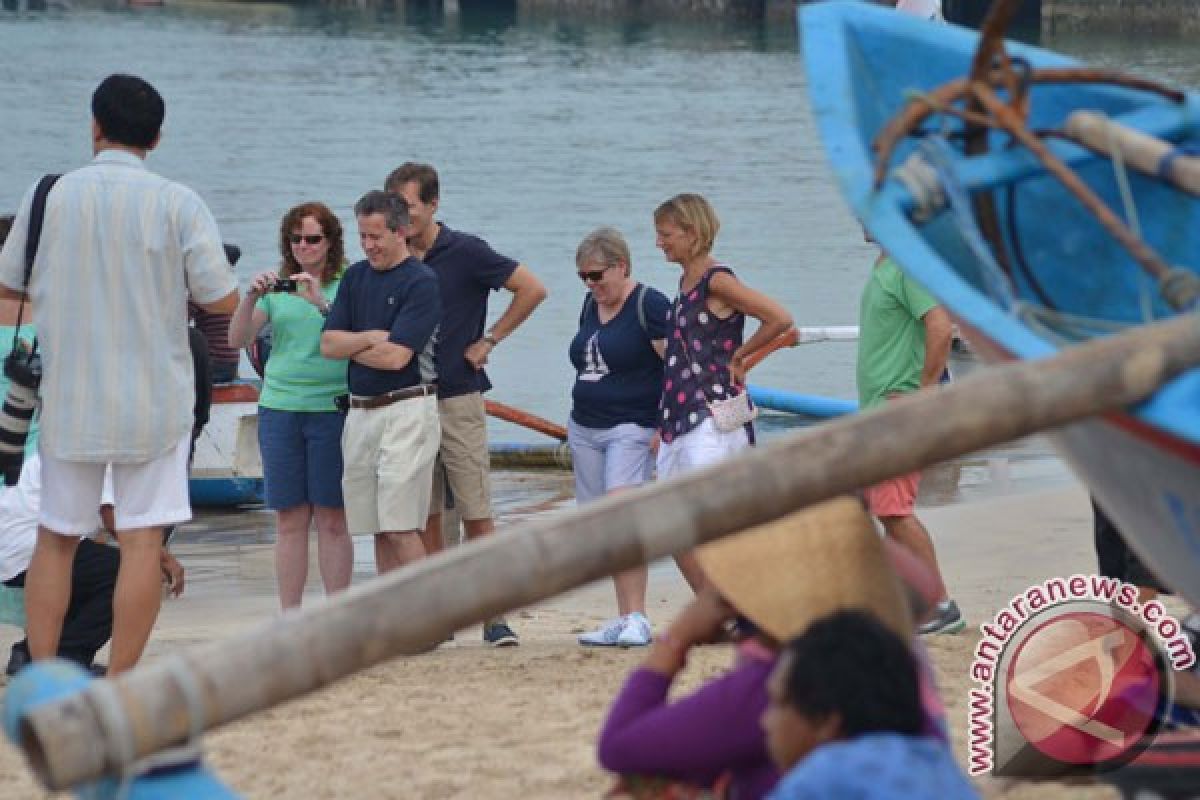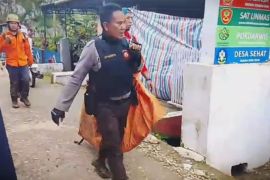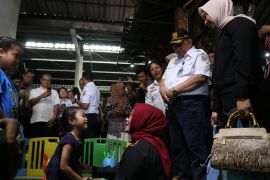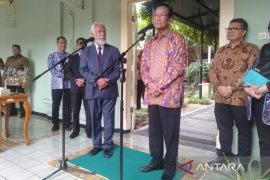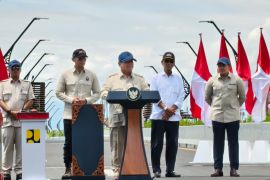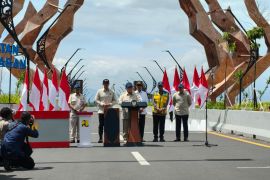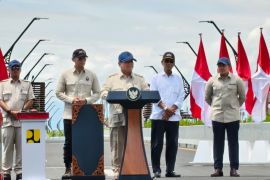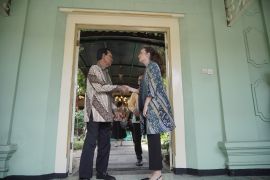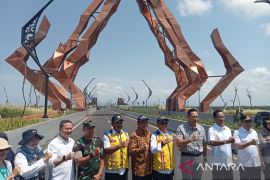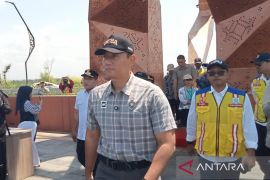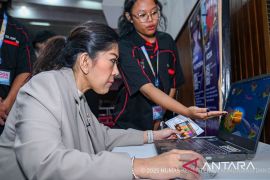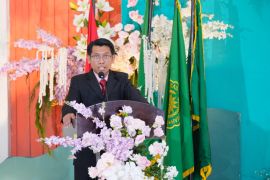They were chosen from among more than 260 villages proposed by 60 member countries of the UN. What a good achievement.
Global recognition of the two Indonesian villages as recommended tourist destinations for world travelers positions them as places that are aligned with the global need for striking a balance between human and environmental development as the creation of God Almighty.
Furthermore, the international appreciation will encourage all related stakeholders in the world to learn about the management of the villages that uphold and respect local wisdom as well as promote inclusive and participative interaction between the local people and their environment.
The 2024 UN Tourism forum has become an outstanding agent of promotion for the broad profile of the villages whose specific circumstances are quite different.
It may also prompt the world to learn more about other exotic things as special icons to be remembered and preserved.
The world is believed to be divided into two climate classifications, namely sub-artic and tropical.
The subarctic regions experience four seasons—spring, summer, autumn, and winter. The tropical regions have two seasons—wet (rainy) and dry (summer).
For travelers coming from arctic countries, Indonesia is quite different since it is a tropical country.
This arouses much curiosity and prompts travelers to make the necessary preparations, including travel equipment and documents and living expenses, for a comfortable stay in Indonesia or in other targeted regions/countries and to avoid inconvenience during their journey.
Travelers also peruse local maps, check the weather conditions, and obtain preliminary information about their destinations, including their local culture.
It is easy to find information on digital media about Indonesia. Those who need such information can also visit the Indonesian mission close to where they live.
Indonesia, which comprises 38 provinces, 514 cities/regencies (98 cities + 416 regencies), 7,277 districts, 83,763 villages (8,498 urban villages + 75,265 villages), has an abundance of ethnicities, cultures, and religions.
To regulate the management and supervision of villages, the country promulgated Law No. 6 of 2014 on Village (Desa), and subsequently, two amendments were made to this law through the enactment of Law No. 3 of 2024.
The law requires regional administrations to apply the common principle of upholding sustainability and respecting local wisdom, along with promoting an inclusive and participative spirit and measures, in managing and monitoring villages.
While the law has been issued to strengthen village development, there is also a customary law (adat law) for specific rural citizens.
It is important to know the two laws to respect the close relations between man and man, man and environment, and man and his Creator as the Creator of the Universe.
These aspects are interrelated and make a place what it is.
This pattern of relations reflects harmony and was taken into account by the UN Tourism judges in selecting places that respect social and cultural values as well as nature or environment and the Creator of the Universe.
The determination of the best tourist villages is a sympathetic gesture and decision by the UN Tourism body amid the paradoxical theater in the world today, which is highly disruptive and may degrade the quality of human and environmental conditions due to the overexploitation of resources.
It shows world citizens the way to respect resources or assets, particularly the beauty of nature and the richness of culture and local wisdom, while relaxing individually or in a group, or with family.
The nomination of the best place for tourism is also an emotional appeal to world leaders, including all stakeholders, to realize the dream of their peoples and places to be known by others in terms of good things.
In the absence of a wise and balanced approach toward the environment, global challenges can become real and come close to the point of causing massive destruction due to global warming.
The message of this nomination also directs world leaders and world communities to fulfill international commitments to the 2030 sustainable development goals through their best efforts and capacity.
Though this goal still seems challenging, rural citizens who take care of the environment can give voice to concerns and become the subjects of bottom-up initiatives of local and central governments and the world to act firmly to protect national assets for the benefit of the current and next generations.
The challenges seem very complex since the global population is growing uncontrollably, while world resources are limited. This may ultimately lead to conflict due to political ambitions to exploit the natural resources of defeated nations/countries.
The success of rural area administrations and strong customary societies are a golden reserve and strategic factors to be managed for achieving the sustainable development goals.
For that reason, safety measures and a good village administration (rural area) are pillars for all stakeholders trying to build a stronger nationality in every country.
Rural areas, where forests and agricultural environments are usually found, are sources of water, source of food, source of energy, and sources of humble intellectuals who work in silence.
The rapid expansion of digital technology and the young generation's exposure to it is frightening. It could prove highly disruptive if the rural/local people are not shielded by strong character and knowledge that aligns with the current and next development era.
For that reason, all international agendas for building national character should be prepared by strong and transparent administrations to prevent miscommunication and misleading reports on the management of local administrations and assets.
Furthermore, the selection of Indonesian villages as international or domestic tourism destinations must give rise to a positive forum for stakeholders and administrations to promote the exchange of views with noble values among visitors and locals to support sustainable development for the current and next generations.
It is good to hear that eco-tourism, green tourism programs, and empowering visiting programs are being opened and organized.
It is hoped that in the years to come, other Indonesian villages will be elected and listed as tourism destinations, building on the good example set by villages in Yogyakarta and in Bali for a better Indonesia that embraces the circular economy and ensures the welfare of local people without neglecting the noble values of locals.
Local values respect the good relations between man and man, man and environment, and man and his Creator.
*) Moehammad Amar Ma’ruf is a career diplomat, author of Katulistiwa, descendant of a family from Gunung Rangkong village, Serang Banten province, Indonesia.
The views and opinions expressed on this page are those of the author and do not necessarily reflect the official policy or position of ANTARA News Agency.
Copyright © ANTARA 2024
